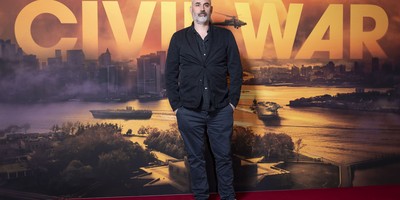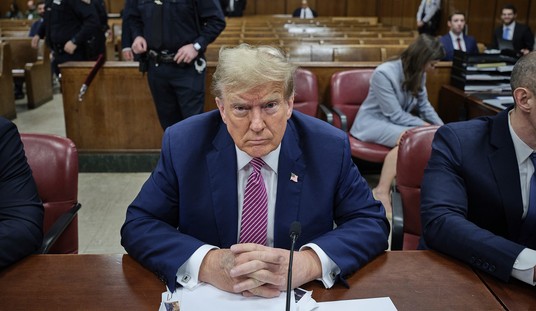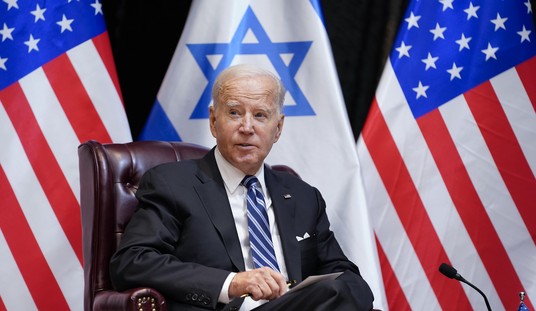Assassination is something none us like to talk about, but it's nevertheless an unhappy part of the history of the presidency. Nearly 10 percent of our 43 presidents have died at the hand of assassins, and attempts were made on a half-dozen others. The prospect of assassination is a legitimate concern for the presidential candidates, their families and the rest of us.
The Secret Service, which guards presidents and presidential candidates, naturally declines to talk about assassination, or any of the details of how it protects anyone. The Internet attracts weird characters, many of them blowhards armed only with a laptop and a neurotic grievance who would have difficulty plotting a successful trip to the bathroom, but threats have to be taken seriously. Lately, reporters accompanying Barack Obama have noticed a growing number of agents in the Obama traveling party, conspicuous for their haircuts, neat dark suits, modest ties and tiny yellow badges worn on the lapels of their suits.
Some people who ought to know better even speculate about the likelihood of the assassination of specific candidates. Doris Lessing, the 88-year-old winner of the Nobel Prize for literature last year, says Mr. Obama "would certainly not last long, a black man in the position of president." She thinks "the best thing would be if [Hillary Clinton and Barack Obama] would run together. Hillary is a very sharp lady. It might be calmer if she were to win and not Obama." This merely sounds like a clumsy endorsement better left unsaid.
Newspapers here and abroad have taken note of the buzz about assassination. Ben Olken, a professor economics at Harvard, has even quantified the "Effects of Assassinations on Institutions and War" and finds, no small irony, that the assassins rarely accomplish what they set out to do. Together with his research associate, Ben Jones, an economist at Northwestern University, he studied the economic conditions surrounding dozens of assassination attempts on heads of state, some successful and some not, throughout the world over the past 125 years. They discovered, for one startling example, that assassination usually has no effect on starting wars, and "suggests that World War I might have begun regardless of whether the attempt on the life of Archduke Franz Ferdinand in 1914 had succeeded or failed."
Recommended
Assassination buzz spawns speculation, mostly partisan and some of it mean-spirited, about who the assassins would be. There's the inevitable attempt to invoke race and assume that because Barack Obama is a black man, his lethal tormentors will be Southern rednecks. But the four presidential assassinations in our history were largely the work of deranged hangers-on from the margins of society, driven by personal jealousies and demons, and pathetic delusions of fame and celebrity. The public revulsion by both black and white to the subtle invocation of race in the Democratic primary campaign suggests strongly that this is not your grandfather's America.
The deranged among us come in the usual partisan guises: liberal and conservative, Republican and Democrat. Of our four presidential assassins, two were motivated by politics, loosely defined; one was an embittered actor and Confederate partisan, and one was an angry, disappointed office-seeker.
John Wilkes Booth and Lee Harvey Oswald are the best known of the four assassins, and decades after their deeds arguments still rage over what conspiracies, if any, led to the events at Ford's Theater in Washington and the Texas School Book Depository in Dallas. In the accepted accounts of what happened, Booth was killed several days after he shot Abraham Lincoln; Oswald was shot, by a low-life trying to impress Jackie Kennedy, while in police custody, two days after he killed John F. Kennedy.
But some historians argue that Union soldiers killed a man they only thought, or wanted to think, was Booth, and the real Booth actually escaped to live out a long life under an assumed identity. Most historians accept the accounts that Oswald was, in Mrs. Kennedy's famous remark, "a silly little Communist," acting alone. Conspiracy fantasies die hard.
There's no debate about the assassins of Presidents James A. Garfield and William McKinley. Charles Guiteau shot down Garfield, angry because he wouldn't appoint him U.S. consul in Paris. He might not have died if his doctors hadn't been such blundering butchers; one of them, probing for the bullet with an unsterilized finger, punctured his liver. Leon Czolgosz, an anarchist trying to impress Emma Goldman, shot McKinley at the Pan-American Exposition in Buffalo, N.Y.
We're still fascinated by the details of these assassinations, but it ought to impress the nuts among us that assassins never change the course of history; they all wind up ignominiously dead.

























Join the conversation as a VIP Member